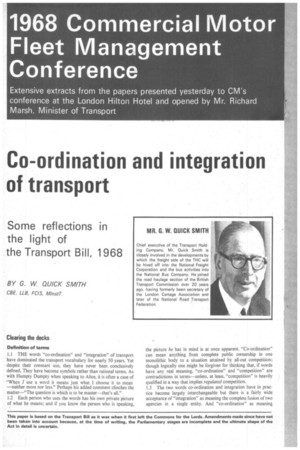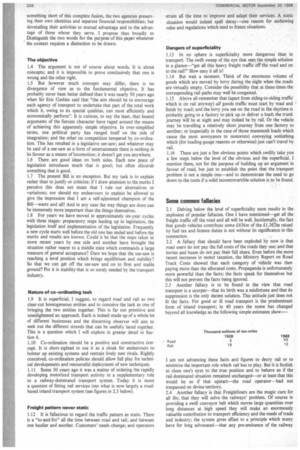Clearing the decks
Page 211

Page 212

If you've noticed an error in this article please click here to report it so we can fix it.
Definition of terms
1.1 THE words "co-ordination" and "integration" of transport have dominated the transport vocabulary for nearly 50 years. Yet despite their constant use, they have never been conclusively defined. They have become symbols rather than rational terms. As with Humpty Dumpty when speaking to Alice, it is often a case of "When I use a word it means just what I choose it to mean
—neither more nor less." Perhaps his added comment clinches the matter—"The question is which is to be master—that's all." 1.2 Each person who uses the words has his own private picture of what he means; and if you know the person who is speaking,
the picture he has in mind is at once apparent. "Co-ordination" can mean anything from complete public ownership in one monolithic body to a situation attained by all-out competition; though logically one might be forgiven for thinking that, if words have any real meaning. "co-ordination" and "competition" are contradictions in terms—unless, at least, "competition" is heavily qualified in a way that implies regulated competition.
1.3 The two words co-ordination and integration have in practice become largely interchangeable but there is a fairly wide acceptance of "integration" as meaning the complete fusion of two agencies in a single entity. And "co-ordination" as meaning something short of this complete fusion, the two agencies preserving their own identities and separate financial responsibilities; but dovetailing their activities to mutual advantage and to the advantage of those whom they serve. I propose thus broadly to Distinguish the two words for the purpose of this paper whenever the context requires a distinction to be drawn.


















































































































































































































































































































































































